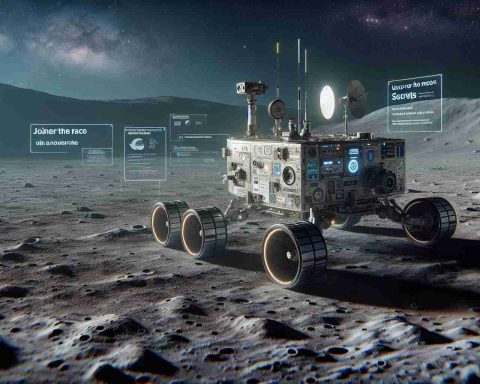- Pixxel and Digantara represent a significant milestone in India’s private space exploration sector.
- Pixxel uses hyperspectral imaging satellites to provide detailed insights for industries such as agriculture and defense.
- Digantara’s SCOT satellite is pioneering space safety by tracking debris as small as 5 cm to prevent orbital collisions.
- Both companies are driving innovation in environmental monitoring and space traffic management.
- These advancements position India as a key player in the global space economy while promoting sustainable practices.
In an exciting leap for India’s space aspirations, emerging players Pixxel and Digantara have launched their pioneering satellites aboard a SpaceX rocket, marking a significant milestone in private space exploration. These innovative ventures spotlight India’s burgeoning presence in the global space industry, with groundbreaking technologies that promise to reshape our understanding of Earth and beyond.
Unveiling the Earth’s Secrets with Pixxel
Pixxel has distinguished itself as the first Indian company to deploy a constellation of satellites using cutting-edge hyperspectral imaging. These satellites capture extensive data across over 150 spectral bands, allowing for unprecedented analyses of Earth’s surface. Imagine being able to discern intricate details from agricultural fields to urban infrastructures with a resolution six times sharper than traditional satellites. This level of precision empowers industries like agriculture and defense to innovate and optimize operations, ensuring a more efficient and informed future.
Navigating the Space Highways with Digantara
On the other front, Digantara is revolutionizing space safety with its unique SCOT satellite. As the first commercial satellite aimed at tracking space debris as small as 5 cm, SCOT addresses the urgent need for a safer space environment. This technology is a game-changer for national security and space traffic management, as it works to prevent potentially catastrophic collisions in our increasingly congested orbital pathways.
A Catalyst for Sustainability and Growth
Together, these ventures are more than just technological feats; they symbolize a new era of private enterprise in India’s space sector. By expanding capabilities in environmental monitoring and enhancing space safety, Pixxel and Digantara are paving the way for sustainable progress across multiple domains. Their innovations not only bolster India’s position as a formidable player in the space economy but also promise broader societal benefits, ensuring a thriving cosmos and a sustainable planet. As these technologies advance, they underscore the integral role of space exploration in crafting a resilient future for all.
How Indian Startups are Revolutionizing Space Exploration: The Pixxel and Digantara Story
What Are the Key Features of Pixxel’s Hyperspectral Imaging Satellites?
Pixxel’s satellites harness advanced hyperspectral imaging technology, capable of capturing data across more than 150 spectral bands. This enables an exceptional resolution that is six times sharper than that of traditional satellites. Such precision allows for detailed analysis in various sectors:
– Agriculture: Identifying pest infestations, assessing crop health, and optimizing harvest cycles.
– Environmental Monitoring: Tracking deforestation, water quality, and carbon footprint with exceptional accuracy.
– Urban Planning: Aiding in infrastructure development and monitoring urban sprawl.
These features make Pixxel’s technology transformative in providing actionable insights across industries and fostering data-driven decision-making.
How Does Digantara’s SCOT Satellite Ensure Space Safety?
Digantara’s SCOT satellite is a pioneering tool in the realm of space traffic management. Its capability to detect space debris as small as 5 cm introduces a new standard of safety in orbit. Key functionality includes:
– Debris Tracking: Assessing and cataloging potential threats to operating satellites and space missions.
– Collision Avoidance: Enhancing national security by providing timely alerts and avoidance strategies against potential space threats.
– Data Integration: Sharing insights with global space communities to create a safer, collaborative space environment.
With space congestion on the rise, Digantara’s contributions are pivotal in safeguarding assets and ensuring sustainability in space exploration.
How Are Pixxel and Digantara Contributing to India’s Space Economy Growth?
Pixxel and Digantara are setting the stage for India’s competitive presence in the global space industry. Their innovations offer multiple economic and strategic benefits:
– Job Creation: Boosting employment opportunities within engineering, scientific research, and data analytics sectors.
– Foreign Partnerships: Attracting international collaborations and investments, strengthening India’s position in the global market.
– Technological Advancements: Pushing the envelope in satellite innovation further solidifies India’s reputation as a technology hub.
By identifying unique systemic issues and offering solutions, they promise benefits beyond the economic landscape, spurring progress in space exploration at large.
For more information on India’s burgeoning space sector, visit: ISRO.















